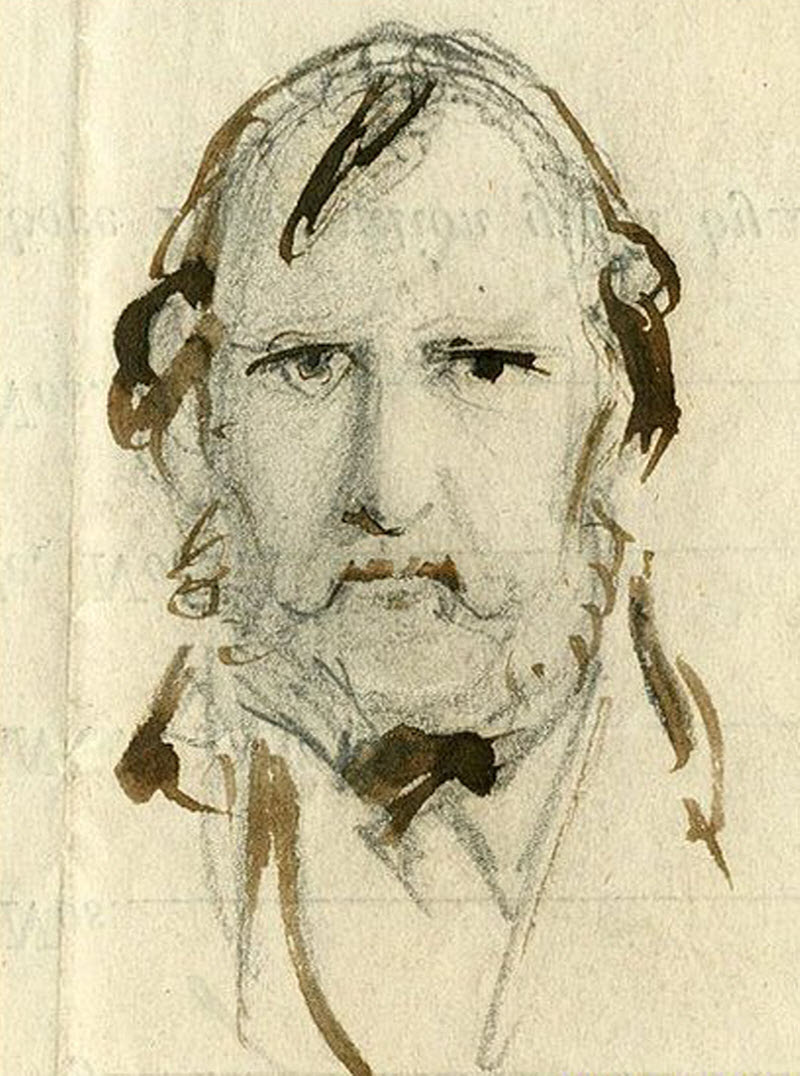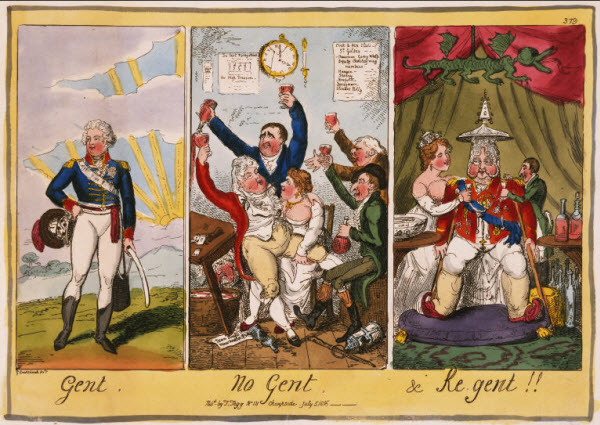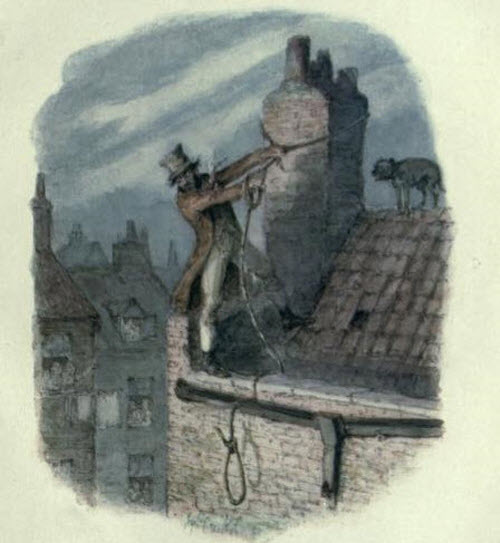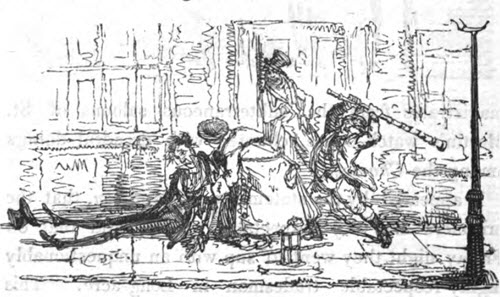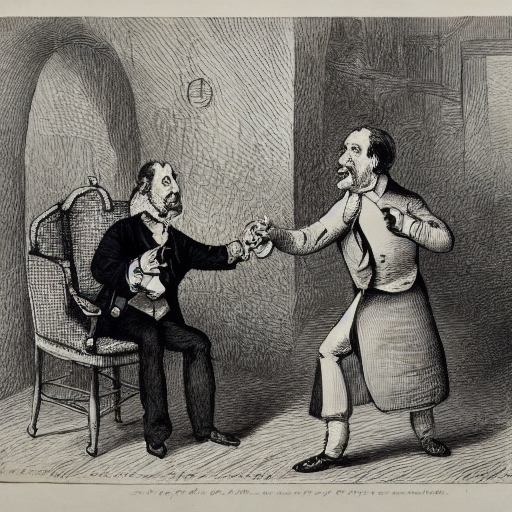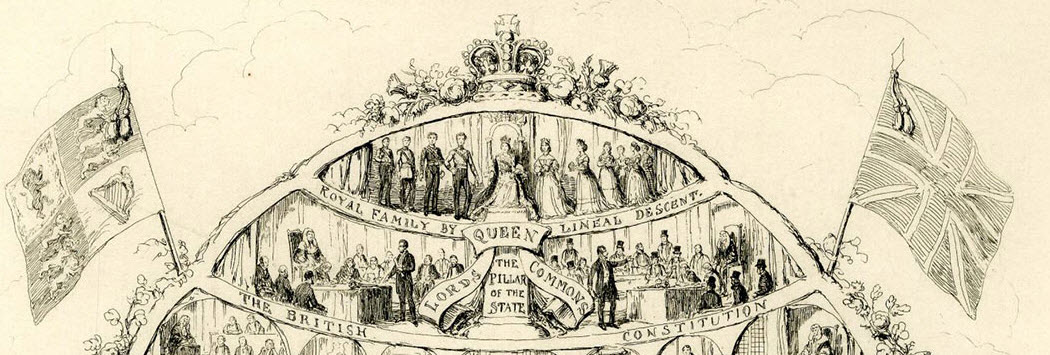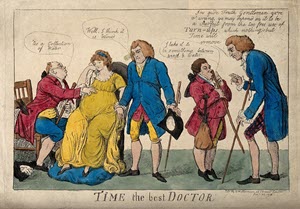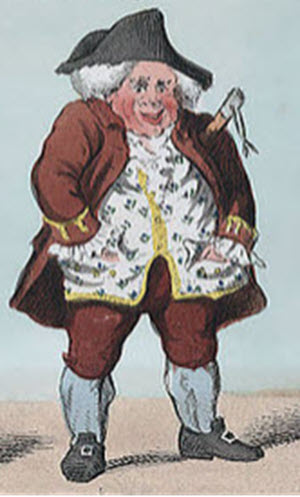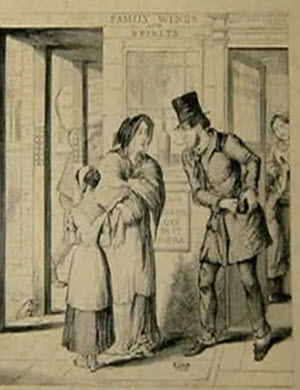which turned the whole course of his humour into an unnatural channel. Cruikshank would not for any bribe say what he did not think, or lend his aid to sneer down anything meritorious, or to
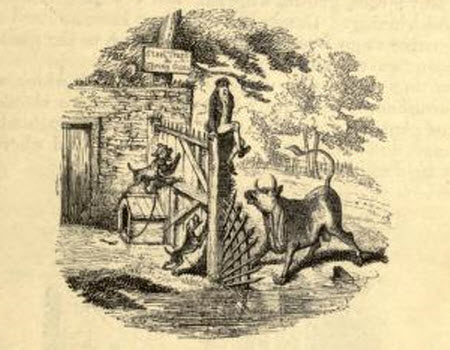
E raise anything or person that deserved censure. When he levelled is wit against the Regent, and did his very prettiest for the Princess, he most certainly believed, along with the great body of the people whom he represents, that the Princess was the most spotless, pure-mannered darling of a Princess that ever married a heartless debauchee of a Prince Royal. Did not millions believe with him, and noble and learned lords take their oaths to her Royal Highness's innocence? Cruikshank would not stand by and see a woman ill-used, and so struck in for her rescue, he and the people belabouring with all their might the party who were making the attack, and determining, from pure sympathy and indignation, that the woman must be innocent because her husband treated her so foully.
To be sure we have never heard so much from Mr Cruikshank's own lips, but any man who will examine these odd drawings, which first made him famous, will see what an honest, hearty hatred, the champion of woman has for all who abuse her, and will admire the energy with which he flings his wood-blocks at all who side against her. Canning, Castlereagh, Bexley, Sidmouth, he is at them, one and all; and as for the Prince, up to what a whipping-post of ridicule did he tie that unfortunate old man. And do not let squeamish Tories cry out about disloyalty; if the crown does wrong, the crown must be corrected by the nation, out of respect, of course, for the crown. In those days, and by those people who so bitterly attacked the son, no word was ever breathed against the father, simply because he was a good husband, and a sober, thrifty, pious, orderly man.
This attack upon the Prince Regent we believe to have been Mr Cruikshank's only effort as a party politician. Some early manifestoes against Napoleon we find, it is true, done in the regular John Bull style, with the Gilray model for the little upstart Corsican; but as soon as the Emperor had yielded to stern fortune our artist's heart relented (as Beranger's did on the other side of the water), and many of our readers will doubt- less recollect a fine drawing of ' Louis XVI trying on Napoleon's boots,' which did not certainly fit the gouty son of Saint Louis. Such satirical hits as these, however, must not be considered as political, or as anything more than the expression of the artist's national British idea of Frenchmen.
It must be confessed that for that great nation Mr Cruikshank entertains a considerable contempt. Let the reader examine the ' Life in Paris,' or the five-hundred designs in which French-
